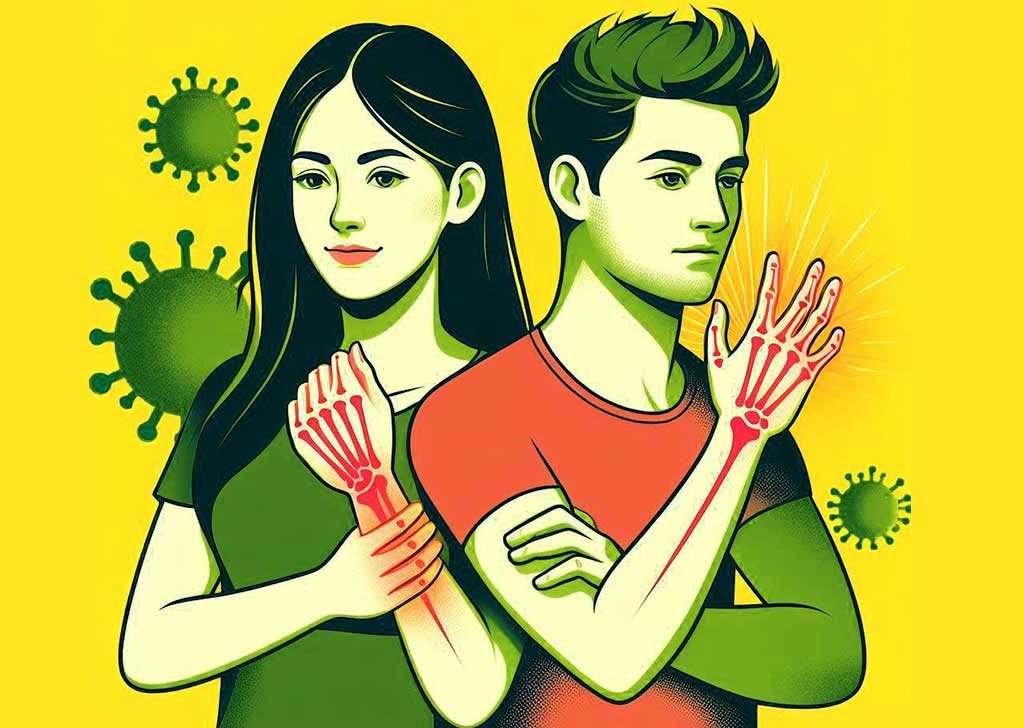Respiratory Syncytial Virus (RSV) is a common virus that affects the respiratory system. Many people wonder how long RSV usually lasts and what symptoms to expect.
Typically, RSV symptoms can last from a week to two weeks for most healthy individuals. However, the duration may vary based on age and health conditions. Infants and young children are more vulnerable, and their symptoms might persist longer. Understanding the timeline of RSV can help parents and caregivers manage expectations and seek appropriate care.
It’s important to recognize that even after other symptoms fade, a lingering cough might continue for weeks. This information is vital for those experiencing RSV or caring for someone affected by this virus.

you can check: Fertility Calculator / BMI Calculator / BMR Calculator / Health Risks Calculator
Read More: Ashwagandha Can Make You Horny / Vaginal Pump / Omron Blood Pressure / Vitamin C in Daily / vitamin D deficiency / magic wash laundromat / amphound / pixelxoom / cake ideas
Read More: vaginal depth / Vaginal Pump / Vaginal Cuff / Vaginal Dryness / Tighten Your Vagina / Sore Penis After Sex / Nicotine and Your Sex Drive / Why am I so horny? / Sexual Battery
Read more: 8 oz Chicken Breast / Sea Moss Gel / V8 Energy Drinks / 3 eggs calories / Eating Masago
How Long Does Respiratory Syncytial Virus (RSV) Usually Last?
Rsv Basics
Understanding RSV (Respiratory Syncytial Virus) is crucial for parents and caregivers, especially during peak seasons. RSV is a common virus that can affect anyone but is particularly concerning for infants and young children. By grasping the basics of RSV, you can better prepare for its symptoms, how it spreads, and what to expect during recovery.
Symptoms Of Rsv
RSV typically starts with mild, cold-like symptoms. You might notice:
- Runny nose
- Cough
- Fever
- Sore throat
In some cases, these symptoms can escalate. Watch for signs of wheezing or difficulty breathing, especially in young children. Understanding these symptoms can help you determine when to seek medical advice.
How Rsv Spreads
RSV spreads easily through respiratory droplets. When an infected person coughs or sneezes, tiny droplets land on surfaces or in the air, making it easy for others to catch the virus.
It can also linger on surfaces for several hours. So, if your child touches a contaminated surface and then touches their face, they may become infected. Regular handwashing and avoiding close contact with infected individuals are key strategies for prevention.
Have you ever noticed how quickly a simple cold can spread in your home? RSV is no different. Taking proactive measures can help protect your family, especially during RSV season.
Typical Rsv Duration
Respiratory Syncytial Virus (RSV) typically lasts from a few days to two weeks. Symptoms often begin with a mild cold. They may include coughing, sneezing, and a runny nose. The duration can vary based on age and health. Understanding the recovery time can help manage expectations. Let’s look at how long RSV lasts for different age groups.
Recovery Time For Adults
For most adults, RSV symptoms usually last about one week. Mild cases may clear up in a few days. Adults with healthy immune systems often recover quickly. Some may experience lingering coughs. This cough can last for weeks, even after other symptoms fade. Rest and hydration help speed up recovery.
Recovery Time For Children
Children, especially infants, may take longer to recover. Symptoms in children can last from a week to ten days. Infants may show more severe symptoms. They might struggle with breathing and require medical attention. After the main symptoms go away, a cough can linger. This cough can persist for several weeks. Careful monitoring is important during recovery.
Mild Vs. Severe Rsv
RSV can affect individuals differently. Most healthy children experience mild symptoms. However, infants and young children may face more severe issues. Understanding the differences is crucial for proper care.
Mild RSV usually mimics a common cold. Severe RSV can lead to serious respiratory problems. Knowing the symptoms helps in identifying the severity of the infection.
Mild Rsv Symptoms
Mild RSV symptoms often resemble a cold. Common signs include a runny nose and mild cough. Sneezing and a low-grade fever may also occur. These symptoms usually last for a week or two.
In most cases, children recover without medical help. Parents should monitor their child’s condition. If symptoms worsen, it may be time to seek advice.
Signs Of Severe Rsv
Severe RSV presents more alarming symptoms. Difficulty breathing is a major concern. Rapid breathing or wheezing may be noticeable. A high fever can also indicate a serious infection.
Look for signs of dehydration, like dry mouth or no tears. Lethargy or irritability can signal worsening health. Immediate medical attention is necessary in these cases.
Rsv In Infants And Young Children
Respiratory Syncytial Virus (RSV) is common in infants and young children. It can cause mild to severe respiratory illness. Understanding RSV helps parents recognize symptoms and seek timely care.
Infants and young children are especially vulnerable to RSV. Their immune systems are still developing. This can lead to prolonged symptoms and complications.
Symptom Persistence In Infants
In infants, RSV symptoms may last longer than in older children. Typical symptoms include coughing, wheezing, and difficulty breathing. These can persist for one to two weeks.
Some infants may experience a lingering cough. Even after other symptoms improve, the cough can last several weeks. Watching for changes in breathing is crucial. Seek medical help if breathing becomes difficult.
Risk Factors In Young Children
Certain factors increase the risk of severe RSV in young children. Premature birth is a significant risk factor. Children with heart or lung issues are also at higher risk.
Exposure to secondhand smoke can worsen RSV symptoms. Children under two years old are more likely to experience severe effects. Keeping them away from crowded places can help prevent infection.
Rsv With Underlying Conditions
RSV typically lasts about one to two weeks in most healthy individuals. For those with underlying conditions, symptoms may persist longer. Infants and individuals with weakened immune systems can experience more severe and prolonged symptoms, requiring careful monitoring and medical attention if necessary.
Understanding how RSV (Respiratory Syncytial Virus) affects individuals with underlying conditions is crucial. These conditions can significantly alter the duration and severity of the illness. If you or someone you care for has an underlying health issue, knowing the potential risks associated with RSV can help in managing symptoms and seeking timely care.
Effects On Immunocompromised Individuals
Immunocompromised individuals face a higher risk when infected with RSV. Their bodies may struggle to fight off the virus effectively. Symptoms can last longer than in healthy individuals, sometimes extending beyond two weeks. You might notice that even after the acute phase, persistent cough and fatigue linger. Consider a friend who battled RSV while undergoing treatment for cancer. What seemed like a common cold for most turned into a two-month ordeal for her. She frequently felt exhausted, and her cough didn’t fully subside for weeks. This experience highlights the need for extra vigilance and care.
Rsv In Chronic Lung Disease
For those with chronic lung diseases, RSV can be particularly challenging. The virus can exacerbate existing respiratory issues, leading to more severe symptoms. You may find that your usual medication regimen isn’t as effective during RSV infection. It’s essential to monitor your condition closely and consult with healthcare providers promptly. A relative with asthma experienced a RSV infection that triggered intense wheezing and shortness of breath. Despite being well-managed, his asthma flared up, requiring additional treatments. If you or a loved one has chronic lung disease, consider discussing a preventative plan with your doctor before RSV season hits. Would you be prepared to recognize the signs of a worsening condition? Being proactive is vital. Understanding how RSV interacts with underlying conditions can help you navigate the illness more effectively.
Lingering Symptoms Of Rsv
RSV, or respiratory syncytial virus, often leaves behind lingering symptoms. These symptoms can affect recovery. Understanding these can help manage expectations during recovery.
Persistent Cough
A persistent cough is common after RSV. Even after other symptoms fade, the cough may remain. This cough can be dry or wet and may last for weeks.
Children often experience this lingering cough. It may disrupt sleep or play. Parents should monitor the cough closely.
Staying hydrated can help soothe the throat. Using a humidifier can also ease coughing. If the cough worsens, consult a doctor.
Long-term Respiratory Effects
Some individuals may face long-term respiratory effects from RSV. These effects can include wheezing or shortness of breath. These symptoms may appear months after the initial infection.
In infants, RSV can lead to asthma-like symptoms later in life. Children with pre-existing conditions may experience more severe effects.
Regular check-ups can help monitor respiratory health. Early intervention can prevent complications. Awareness of these risks is vital for parents and caregivers.
When To Seek Medical Advice
Recognizing when to seek medical advice for RSV is crucial. Symptoms can vary widely. Some cases are mild. Others can become severe quickly. Knowing when to act can help ensure safety.
Parents, caregivers, and individuals should stay alert. Certain symptoms may indicate the need for immediate care.
Symptoms Warranting Immediate Care
Watch for signs that require urgent attention. These include difficulty breathing. Rapid breathing or wheezing is also concerning. Look for bluish skin, especially around the lips or face. This can mean low oxygen levels.
High fever, particularly in infants, needs quick action. If a child is unusually lethargic or unresponsive, seek help. Persistent coughing or wheezing that worsens should not be ignored.
Monitoring Dehydration
Dehydration is a serious risk with RSV. Check for signs of dehydration regularly. Dry mouth, lack of tears, and reduced urination are key indicators. Infants may not feed well and seem unusually tired.
Offer fluids often. Water, electrolyte solutions, or clear broths can help. If symptoms of dehydration appear, contact a healthcare provider. Quick action can prevent complications.
Treatment Options For Rsv
Understanding the treatment options for RSV is essential. While there’s no cure, several methods can help ease symptoms. These options include home remedies and medical interventions. Each can offer relief and support recovery.
Home Remedies
Home remedies can play a vital role in managing RSV symptoms. Rest is crucial for recovery. It helps the body fight off the virus. Stay hydrated by drinking plenty of fluids. Water, broth, and herbal teas are good choices.
Using a humidifier can also provide relief. A cool-mist humidifier adds moisture to the air. This helps ease breathing and soothe irritation. Steam from a warm shower can serve the same purpose.
Saline nasal drops can relieve congestion. They help clear nasal passages, especially for infants. For older children, honey can soothe a cough. Always ensure the child is over one year old before giving honey.
Medical Interventions
Sometimes, medical interventions are necessary. If symptoms worsen, consult a healthcare provider. They may recommend medications to relieve discomfort. Over-the-counter pain relievers can help reduce fever and pain.
In some cases, prescription medications may be needed. These can help manage severe symptoms or complications. Hospitalization might be necessary for infants or those with underlying health issues. Always follow your doctor’s advice for treatment.
Preventing Rsv Infection
Preventing RSV infection is crucial, especially for young children and those with underlying health conditions. Simple measures can significantly reduce the risk of spreading the virus. Understanding and implementing effective strategies can help you keep your loved ones safe.
Hygiene Practices
Good hygiene is your first line of defense against RSV. Regular handwashing is essential. Teach your children to wash their hands frequently, especially after being in public places or after coughing and sneezing.
- Use soap and water for at least 20 seconds.
- If soap isn’t available, use a hand sanitizer with at least 60% alcohol.
Disinfect surfaces often, particularly in areas where children play. Toys, doorknobs, and light switches can harbor germs. Keeping these areas clean can minimize the risk of infection.
Encourage your family to avoid close contact with sick individuals. If someone in your household has a cold or flu-like symptoms, try to limit interactions. This not only protects your family but also supports the recovery of the sick individual.
Vaccination And Prophylaxis
While there is no vaccine specifically for RSV, some preventive measures can help. Discuss with your pediatrician about the Palivizumab injection, which can be given to high-risk infants. This medication can help prevent severe RSV infection in those most vulnerable.
Staying up to date with routine vaccinations also plays a role in overall health. Vaccines protect against other respiratory illnesses that can complicate an RSV infection. Make sure your child receives their vaccinations on time.
Have you considered your family’s vaccination schedule? Regular check-ups can help ensure that everyone is protected against preventable diseases.
Implementing these hygiene practices and consulting about prophylactic options can significantly lower the chances of RSV infection. Take proactive steps now to protect your loved ones.
The Impact Of Rsv On Public Health

Respiratory Syncytial Virus (RSV) significantly affects public health. It is a leading cause of respiratory infections in infants and young children. RSV spreads easily, especially in crowded places. Understanding its impact helps communities prepare better.
RSV leads to many hospital visits each year. The virus can cause severe illness in vulnerable groups. This includes infants, the elderly, and those with weakened immune systems. Tracking RSV trends can improve health responses and resource allocation.
Rsv Seasonality
RSV typically has a seasonal pattern. In many regions, RSV peaks during the winter months. This seasonal trend can vary by location and climate. Awareness of these patterns helps families take precautions.
During RSV season, hospitals often see a rise in cases. Parents should be alert to symptoms during this time. Recognizing signs early can lead to timely treatment. This can prevent complications and reduce hospital visits.
Hospitalization Rates
RSV contributes to high hospitalization rates among young children. Each year, thousands of children are admitted for RSV-related issues. This includes bronchiolitis and pneumonia. The highest rates occur in infants under six months old.
Hospitalization can strain healthcare resources. Understanding these rates is vital for public health planning. It helps hospitals prepare for seasonal surges. Timely vaccinations and public awareness can lower these rates.
Coping With Rsv At Home
Managing RSV at home can feel challenging. Understanding how to care for both children and adults is key. Simple strategies can help ease discomfort. Here’s how to cope effectively with RSV symptoms.
Care Strategies For Children
Keep your child comfortable and hydrated. Offer clear fluids like water or broth. Rest is essential for recovery. Encourage quiet activities to reduce fatigue.
Use a cool-mist humidifier. This can help ease breathing. Saline nasal drops can clear congestion. Gently suction the nose if needed.
Monitor their temperature regularly. Use fever reducers like acetaminophen if needed. Always follow the dosage guidelines for children. Consult a doctor if symptoms worsen.
Managing Adult Symptoms
For adults, rest and hydration are crucial. Drink plenty of fluids to stay hydrated. Over-the-counter medications can relieve symptoms. Use pain relievers to manage discomfort.
Stay in a humid environment. A humidifier can help with breathing. Steam from a hot shower can also provide relief.
If symptoms persist or worsen, seek medical advice. Watch for any signs of difficulty breathing. Taking care of yourself is important for recovery.
Rsv Myths Vs. Facts
Understanding RSV can be challenging, especially with the numerous myths surrounding it. Many parents and caregivers worry about the implications of this virus. Let’s clarify some of the common misconceptions and provide you with evidence-based information to help you navigate RSV with confidence.
Common Misconceptions
One prevalent myth is that RSV only affects infants. While it’s true that infants are at a higher risk for severe symptoms, older children and adults can contract RSV too. You might think that once a child has had RSV, they are immune to it forever; however, that’s not the case. RSV can infect a person multiple times throughout their life.
Another misconception is that RSV is just a bad cold. While it can present with mild symptoms in healthy individuals, it can lead to serious respiratory issues, particularly in babies and those with underlying health conditions. Ignoring the severity of RSV can lead to dangerous outcomes.
Evidence-based Information
Research shows that most healthy children will recover from RSV within one to two weeks. However, symptoms can linger, especially the cough, which may last for several weeks even after other symptoms have improved. If you notice persistent coughing or difficulty breathing in your child, it’s crucial to seek medical advice.
It’s also important to know that there is no specific medication to treat RSV. The body needs time to fight off the virus naturally. Supportive care, like ensuring hydration and using a humidifier, plays a vital role in recovery.
When dealing with RSV, staying informed is your best defense. Have you ever experienced a situation where you misunderstood a health issue? Sharing your story could help others in the same boat.
Nutrition And Rsv Recovery
Nutrition plays a key role in recovering from RSV. A balanced diet helps the body heal. Proper nutrition strengthens the immune system. Good food choices can speed up recovery time. Here, we will discuss two main areas of nutrition: hydration and health, and foods to boost immunity.
Hydration And Health
Staying hydrated is vital during RSV recovery. Fluids help thin mucus and ease congestion. Water, herbal teas, and broths are excellent choices. They provide necessary hydration without harsh additives. Aim for small sips throughout the day. This helps maintain energy levels and supports overall health.
Dehydration can lead to more severe symptoms. Watch for signs like dry mouth or dark urine. If symptoms worsen, seek medical advice. Remember, hydration is essential for recovery and comfort.
Foods To Boost Immunity
Eating the right foods can boost your immune system. Focus on fruits and vegetables rich in vitamins. Citrus fruits like oranges and lemons are high in vitamin C. Leafy greens like spinach provide important nutrients as well.
Include protein sources in your meals. Chicken, fish, and legumes support healing. Whole grains, like brown rice and oats, provide energy. Healthy fats from nuts and avocados can also be beneficial.
Consider soups and stews. They are comforting and easy to digest. Spices like garlic and ginger have immune-boosting properties. A nutritious diet can make a difference during recovery.
Long-term Effects Of Rsv
RSV can lead to long-term health effects in some individuals. While many recover quickly, others may face ongoing issues. Understanding these effects is crucial for parents and caregivers. Early recognition can help manage potential complications.
Potential Complications
Some children may develop wheezing after RSV. This can happen even in healthy kids. It may last for weeks or months. In some cases, it can lead to asthma later in life.
Severe RSV may cause lung damage. Infants are at higher risk for this. They may face respiratory issues as they grow older. Continuous monitoring is essential for these children.
In rare cases, RSV can lead to hospitalization. Children with existing health problems are more vulnerable. Their recovery may take longer, requiring careful follow-up.
Follow-up Care Recommendations
Regular check-ups are important after an RSV infection. Doctors can monitor lung health. They may recommend breathing tests if wheezing occurs.
Parents should be alert for any persistent cough. This can indicate ongoing respiratory issues. Seek medical advice if symptoms do not improve.
Maintaining a smoke-free environment is crucial. Avoid exposure to secondhand smoke. This helps protect the lungs from further irritation.
Consulting a healthcare provider about vaccinations can be beneficial. Certain vaccines can reduce the risk of severe respiratory infections.
Rsv Research And Developments
RSV, or Respiratory Syncytial Virus, has captured the attention of researchers and healthcare professionals alike. With its significant impact on infants and young children, ongoing research is critical to understand its effects and develop effective treatments. Recent advancements in RSV research promise to enhance our ability to combat this virus, leading to better health outcomes for vulnerable populations.
Recent Studies
Researchers are continuously investigating the behavior of RSV and its impact on different age groups. One recent study highlighted how RSV affects the respiratory system, particularly in infants. The findings emphasized that early detection and intervention can lead to better management of symptoms.
Another important study looked into the long-term effects of RSV infections. It found that children who experienced severe RSV infections were more likely to develop asthma later in life. This insight stresses the need for effective prevention and treatment strategies as RSV can have lasting repercussions.
Future Treatments And Vaccines
Exciting developments in RSV treatment and prevention are on the horizon. Researchers are exploring monoclonal antibodies, which could provide immediate protection against RSV. This approach shows promise, especially for high-risk infants and children.
Vaccine development is also gaining momentum. Several candidates are currently in clinical trials, aiming to provide immunity before exposure to the virus. Imagine a future where a simple vaccination can protect your child from the complications of RSV.
Have you ever wondered how much easier parenting could be with effective RSV prevention? Keeping an eye on these advancements may not only benefit you but also those around you, as stronger community immunity develops.
Staying informed about RSV research can empower you and your family. As developments unfold, they will play a crucial role in safeguarding the health of children everywhere.
Conclusion
RSV typically lasts about one to two weeks. Most healthy individuals recover without complications. Infants and those with health issues may take longer to heal. Even after other symptoms fade, a cough can linger. Staying hydrated and getting enough rest is important.
Always monitor symptoms closely. Seek medical advice if breathing problems arise. Understanding RSV helps you manage it better. Knowledge is key to supporting recovery. Stay informed and take care.



